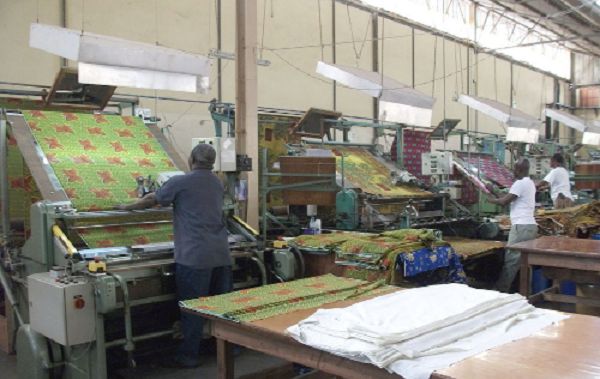- Solid expansions in output and new orders
- Material shortages lead to record rise in backlogs of work
- Fastest rate of job creation since February 2020
Business conditions in Ghana’s private sector continued to improve in April on the back of further expansions in output and new orders.
Firms increased employment at a modest rate, but this was insufficient to keep on top of workloads as difficulties securing materials meant that backlogs of work rose at a record pace.
The headline seasonally adjusted Ghana PMI registered an above-50.0 reading for the ninth successive month in April, thereby signalling a further improvement in operating conditions in the private sector.
Furthermore, the PMI rose to 52.4 from 51.8 in March as the rate at which business conditions strengthened picked up at the start of the second quarter. A sharper increase in new orders was recorded in April amid stronger demand, good relationships with clients and customer recommendations.
New business has expanded in each month since June 2020. Stronger customer demand was also the main factor behind a further rise in output. Business activity increased at a solid pace, and one that was slightly quicker than seen in March.
Higher output requirements and the filling of previously vacant positions contributed to a further increase in staffing levels. The rate of job creation was modest, but quickened to the fastest since February 2020, just before the COVID-19 pandemic began to impact the private sector.
Efforts to keep on top of workloads by taking on extra staff were hampered by difficulties securing materials.
Panellists listed this as the key reason for a sharp accumulation in backlogs of work, and one that was the steepest since the survey began in January 2014. Wider goods shortages were also responsible for longer suppliers’ delivery times in April. Lead times lengthened for the fifteenth successive month, albeit marginally
A further increase in purchasing activity was recorded as firms made efforts to secure inputs. Purchasing was up for the ninth month running, and to the greatest extent since last November. Stocks of purchases also rose, with the pace of accumulation the sharpest in 27 months. The aforementioned issues with securing materials also contributed to a sharp rise in purchase costs at the start of the second quarter.
Cement and maize were among the items listed as costing more, while higher freight charges were also reported. Staff costs increased, but to a much lesser extent than purchase prices. With overall input cost inflation remaining marked, companies again raised their selling prices. The current period of charge inflation was extended to a year, with the latest increase the fastest in three months. Hopes for further improvements in both the public health situation and business conditions supported ongoing confidence in the outlook for output over the coming year. That said, sentiment dipped to the lowest for a year, reflecting ongoing concerns about the impacts of the COVID-19 pandemic and price increases
Commenting on the latest survey results, Andrew Harker, Economics Director at IHS Markit, said: “The latest Ghana PMI suggested that the private sector is enjoying a sustained period of growth at present, with continued improvements in customer demand helping to fuel increases in output, purchasing and employment.
Data actually suggested that output growth could have been even quicker, were it not for material shortages which prevented work on some projects and led to a record rise in outstanding business.
“Overall, after GDP returned to growth in the final quarter of 2020, we can expect to see a further quarterly rise in Q1 2021, and moving into Q2 should the PMI data remain around present levels. This is all, of course, based on the proviso that there isn’t a further spike in COVID-19 cases to throw the economy off course.”










